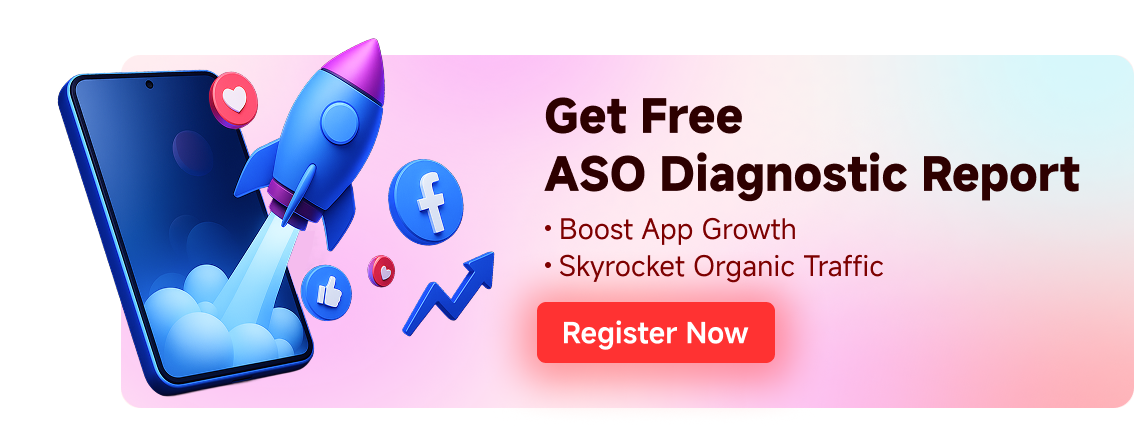Free consultation with ASO specialists
Doing ASO for the first time or have no idea how to carry out targeted optimization of your app?
We offer one-on-one customized services provided by app marketing specialists
Google lost the Epic case,Android app monopoly faces breaking
2025-08-11
In 2020, Epic Games, a game developer, sued Google for antitrust reasons, accusing it of illegally maintaining its monopoly position in the Android application distribution market by forcing the bundling of Google Play Store with payment systems (charging 30% transaction fees), signing exclusive agreements, and other means. This lawsuit lasted five years, and in 2023, a federal jury ruled that Google violated antitrust laws. In 2024, the district court issued a permanent injunction requiring it to open up its ecosystem.
At the end of July 2025, the United States Court of Appeals for the Ninth Circuit issued a unanimous ruling upholding the district court's original judgment that Google constitutes an illegal monopoly in the Android application market. This ruling supports Epic Games' core accusation made in 2020: Google engaged in anti-competitive behavior by forcing users to bundle the Google Play Store and its payment system (charging a 30% commission) and suppressing third-party app stores. The court also confirmed the validity of the permanent injunction aimed at "restoring competition," issued by Judge Donato in October 2024.
Core Decisions and Current Status
-
The ban is supported
The Court of Appeals explicitly approved the reforms required by the District Court, including
-
Open third-party store access: Google would be required to allow users to download and install competing stores, such as the Samsung Store, directly from within Google Play, and open up its full app catalog to these stores.
-
Remove payment restrictions: Remove the clause that forces developers to use Google Play's payment system and pay high fees, and support access to external payment channels.
-
No exclusivity: Google can't use special offers or paid incentives to persuade developers to exclusively distribute apps on its Play store, and it can't prevent phone makers from pre-installing third-party app stores.
-
Execution is postponed until final decision
The key point is that the Court of Appeals has now granted Google's request to temporarily suspend (suspend execution) of the above injunction, so that Google has time to prepare materials for appeal to the Supreme Court of the United States. The court made it clear that if the Supreme Court refused to accept the case or finally rejected Google's appeal and no longer extended the suspension period, then the injunction would come into force and be enforced as planned.
Epic's Argument: The Triple Win of an Open Ecosystem
-
Breaking up monopoly pricing
The accusation that Google charges a 30% commission has raised the price of application services, which is eventually passed on to consumers. After opening payment competition, developers can use third-party payment systems (such as Epic's scheme with a commission of about 26%) to reduce costs and create space for price reductions.
-
Stimulate market innovation
Allowing third-party app stores (such as Samsung Galaxy Store) to access the Play ecosystem will enable emerging platforms to challenge Google's dominance through vertical domain services (such as game-specific optimization and regional distribution), breaking the single review standard that suppresses innovation.
-
User Autonomy
Consumers can freely choose the application acquisition channel and payment method, avoiding being forced to be bundled into Google's system. Multi-store competition may lead to services that better meet local needs (such as offline payment functions in the Indian market).

Google's Defense: The Intransigence of the Security Line
-
Malware Defense System
According to the 2024 security report, Google Play Protect intercepts 99% of malicious apps per year, while third-party stores have significantly increased potential exposure due to varying review standards.
-
Anti-fraud Capabilities
Internal monitoring shows that the fraud transaction rate of unofficial payment channels can reach 3 times that of Google's system, and open payments will weaken the protection of users' financial security.
-
Ecosystem protection system collapse
It emphasizes that centralized control of app stores, payments, and device pre-installations constitutes a complete protection chain. Under a fragmented ecosystem, the dispersion of security responsibility entities may lead to delayed vulnerability responses and increased data leakage risks.
Global Impact and Potential Changes
-
Resonating with global regulatory trends
This ruling is consistent with the direction of the EU's Digital Markets Act (DMA), which requires large platforms to open up payment and store choices, as well as South Korea's 2022 global first legislation prohibiting app store payment monopolies, strengthening the trend of constraining the "gatekeeper" role of tech giants worldwide.
-
Emerging Market Opportunities
If the ban comes into effect, the growth pattern of India and Southeast Asia may be reshaped. Xiaomi, OPPO, vivo and other mobile phone manufacturers' own app stores are expected to have greater room for development, and the penetration rate of local payment solutions may also increase significantly.
-
Opportunities and challenges coexist
-
Developer:Potential benefits include the possibility of reducing payment fees (commissions for third-party payment solutions are generally lower than 30%, and can even be as low as single-digit percentages), saving costs that can be used for innovation or user concessions; diversifying application distribution channels, reducing dependence on Google's single platform.
-
User:In theory, users will have more choices, including the freedom to choose app stores and payment methods, and may enjoy lower prices brought about by competition. However, at the same time, the court and Google both warned that apps and payments from third-party sources may pose higher security risks, and users need to bear more responsibility for identification.
Developer's response strategy: Find the balance point in the change
If the ban is eventually implemented, developers need to simultaneously grasp opportunities and manage risks:
-
Cost Optimization and Channel Expansion
Adopting third-party payment can reduce commission expenses (such as the rate of Epic payment scheme is about 26%), but an additional payment dispute handling system needs to be invested; actively accessing application stores of hardware vendors such as Xiaomi and Samsung, expanding user coverage through pre-installation cooperation, while coping with the increase in operation and maintenance complexity brought by the differences in multi-store review standards.
-
Security Compliance Upgrade
When choosing payment partners, it is mandatory to require them to pass the PCI DSS (Payment Card Industry Data Security Standard) certification; on the application download page of non-Google Play channels, clearly mark security tips and fulfill the obligation of risk notification.
-
Regional Experience
Reference to the practice after opening payment in South Korea in 2022: Local developers saved an average of 18% commission costs, but customer service pressure increased by 32% due to payment disputes (Seoul National University 2024 study), requiring the establishment of a user dispute response mechanism in advance.
Future Directions: Uncertainty and Ecological Evolution
Currently, the fate of the Android ecosystem is hanging on whether the Supreme Court will accept Google's appeal. If the injunction is finally implemented, the Android market will inevitably move towards a more "fragmented" competitive landscape, with third-party stores, payment service providers and mobile phone hardware manufacturers challenging Google's dominance. This will also further widen the gap between the Android and Apple iOS ecosystems, the latter of which still maintains a strict "walled garden" model in most regions. How to find a new balance between open competition and ensuring user safety will become the core challenge facing Google and the entire Android ecosystem in the future.
In the era of intelligent distribution in app stores, accurately acquiring users is the key to success. AppFast provides professional ASO optimization services to deeply empower growth on the App Store and Google Play. Through precise metadata strategies, management of user ratings and reviews, and end-to-end optimization solutions, we can significantly improve your application's keyword coverage and ranking, optimize conversion paths, and drive natural growth of high-quality users. Conduct a metadata diagnosis now to seize the opportunity for traffic!
Related recommendations

